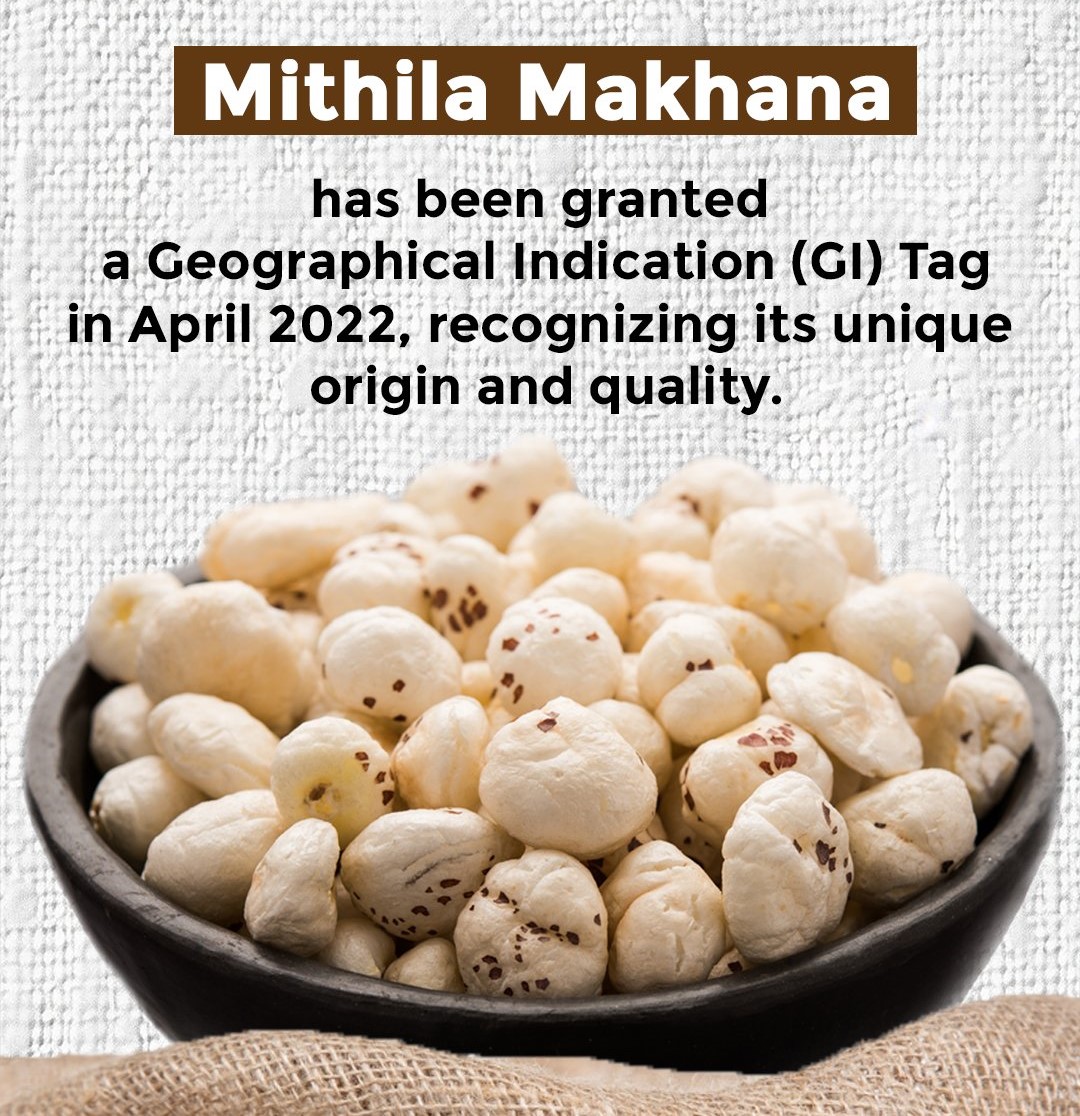Context:
Recently, Prime Minister Narendra Modi inaugurated the National Makhana Board in Purnea, Bihar. This initiative, first announced in the Union Budget 2025, aims to boost the production, processing, and export of makhana—also known as fox nut.
Role and Objectives of the National Makhana Board
The newly established National Makhana Board will focus on several key areas to transform the sector: raising production standards, enhancing post-harvest management, introducing advanced technologies, expanding value addition, and improving marketing and export linkages.
· It will also support farmer-producer organizations and help makhana farmers access central government schemes, providing much-needed institutional backing to this traditional crop.
About Makhana:
Makhana, or fox nut, is an aquatic flowering plant scientifically called Euryale ferox. It thrives in tropical and subtropical climates, growing in stagnant water bodies like ponds and wetlands with water depths of 4-6 feet. Often referred to as the "Black Diamond" because of its dark outer shell, makhana seeds turn white when popped.
· Bihar dominates India’s production, accounting for around 90% of the total output. Other states such as West Bengal, Assam, and Manipur produce makhana commercially, while it is also cultivated internationally in countries including Nepal, Bangladesh, and China.
· The crop requires specific climatic conditions, such as temperatures between 20°C to 35°C, relative humidity of 50-90%, and smooth loamy soil.
· Bihar’s GI-tagged Mithila Makhana is already being exported to countries like the UAE, the US, Canada, and New Zealand. The government’s new initiatives will further boost exports by improving quality standards, marketing, and international market access.
Nutritional Benefits and Traditional Production:
Popped makhana is low in calories and fat but rich in plant-based protein, dietary fiber, and minerals like magnesium, potassium, and phosphorus.
· It also contains antioxidants, making it gluten-free and vegan-friendly—qualities that have increased its demand among health-conscious consumers worldwide.
· The cultivation and harvesting of makhana are labor-intensive. Farmers harvest spiky pods from shallow waters, dry the seeds, roast them at high temperatures, and then pop them to produce the familiar white kernels.
· This traditional process is crucial to livelihoods in Bihar’s Mithilanchal and Seemanchal regions.
Agricultural Reforms:
Makhana development is part of broader government efforts to boost rural agriculture. Key initiatives include
· Prime Minister Dhan-Dhaanya Krishi Yojana, targeting crop diversification and irrigation improvements across 100 districts;
· Mission for Aatmanirbharta in Pulses, focusing on pulse production with procurement support; and an increased Kisan Credit Card loan limit from ₹3 lakh to ₹5 lakh.
Conclusion:
With the launch of the National Makhana Board, Bihar’s makhana sector is poised for transformation—turning this regional specialty into a globally recognized superfood and boosting rural prosperity.







